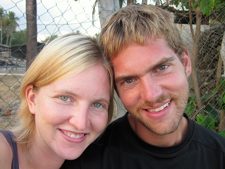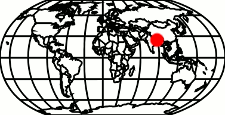At this point we have no idea how much our around the world trip will cost. I suppose, we won’t know the total cost until we stop travelling and compare what’s left in our bank account to what what we started with.
Regardless of how you intend to travel, you will likely need at least some funds for plane tickets, meals, and hostels. We are no different. Some people are lucky enough to have jobs they can generate an income from regardless of where in the world they are. These jobs include many online jobs such as writing columns, translating, proofreading, writing computer code, and similar. These jobs could be a good source of funds while you travel, reducing the amount of pre-savings that are required.
We don’t have any of the above mentioned jobs, nor do we want them. Our goal is to get jobs or volunteer in the various countries we visit. We want to experience the culture, and the lifestyle that our various destinations have to offer. Unfortunately, there is no way for us to guarantee that we will find jobs or be able to subsidize some of our living expenses with volunteer positions in each country we travel to. This leaves a fair amount of uncertainty when we sit down to estimate what our total trip cost will be. Not knowing the total cost makes it just as hard to decide how much we need to save.
Our approach has simply been to save as much as we can, and not worry about how long we can afford to travel for. We’ve been telling people we are leaving in July, and we are going to keep travelling until we get sick of it, or we run out of money. On the right side of this screen is a progress bar under the heading Travel Funds. This represents our total trip budget. This bar should slowly but surely increase toward our savings goal of 100% until we receive our last paycheck. Once we quit our jobs and start travelling, our progress bar will slowly but surly decrease toward 0%. Once it hits zero, it’ll be time to quit travelling and start working again.
I’m not going to say how much we plan to save up for our trip, but I will say that we have been living a fairly modest lifestyle since Ashley and I were married in 2007. We live in a small affordable home, own only a single fuel efficient vehicle and don’t really have any expensive hobbies, aside from travel. Our biggest expense has definitely been our honeymoon trip to New Zealand in 2007.
That said, we still benefited greatly from a quick budgeting session in December 2010. By making relatively few lifestyle changes, we’ve managed to increase our monthly savings considerably. Here’s a few tips that may help you.
- Invest your savings. We put our savings into ING Direct. It pays a modest amount of interest monthly and allows us to take advantage of our Canadian Tax Free Savings Accounts. If you would like to start a new account, please use this Orange Key: 14780906S1 when you sign-up and we will both enjoy a sign-up bonus
- Look at your bank account plan. We have a checking account with TD Canada Trust, and are able to save about $5 per month on account fees by upgrading our account and keeping a minimum balance of $5,000. This higher level account also comes with free ATM withdrawal fees when used outside of Canada. The ATM fees are normally $5 per transaction, quite staggering
- Take a look at your reoccurring monthly bills. We managed to save about $60 each month by re-arranging our Television bill
- Set a budget for entertainment. We lumped together all the little things we enjoy that cost money into this category. Eating in restaurants, going to the bar, going out to the movies, etc.
- Car pool. We were always fairly good at carpooling, but we are making an extra effort now. We set a gas budget and are trying to stick to it
- Carry forward your budget from one month to the next. If you didn’t spend your whole budget, great you can reward yourself next month. If you spent too much and are over budget, you’ll have to subtract that from next month’s goal so you can get back on track.
- Most importantly keep track of how much you’ve spent as you spend it. There should be no surprises at the end the month and you should always know if there is money left in the budget for you to spend or not.




